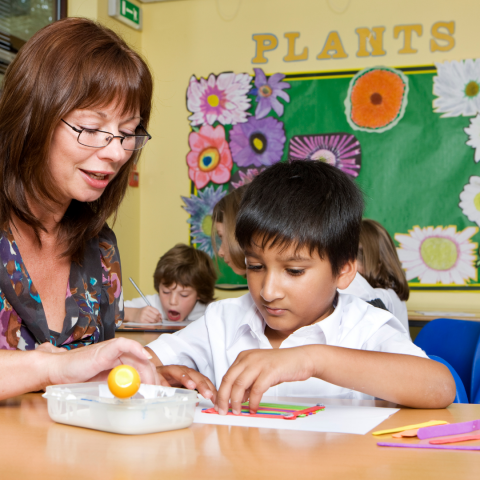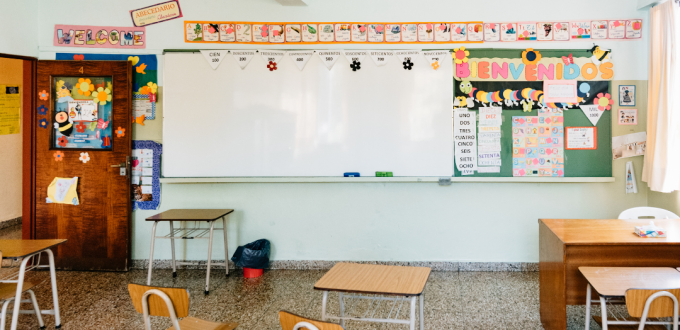The Primary Curriculum Framework: An Overview of the New Primary Curriculum for Ireland
The Minister for Education Norma Foley has officially launched the new Primary Curriculum Framework for primary and special education schools. The framework was developed by the National Council for Curriculum and Assessment, work that took six years to prepare, researched and designed using national and international research, reaching out to over 60 primary schools and preschools, and engaging with education partners and stakeholders.
Overview of the Primary Curriculum Framework
In this overview, we will look at the core aspects of the Primary Curriculum Framework, its components, principles, and competencies that will be implemented in schools in Ireland.
The first part of the Primary Curriculum Framework includes the Principles of Learning, Teaching, and Assessment, eight principles that convey what is valued in primary and special education:
- Partnerships: Collaboration between schools, families, and communities to enrich learning.
- Learning environments: Indoor and outdoor environments that nurture and shape learning.
- Inclusive education & diversity: Equity of opportunity and participation in children’s learning.
- Engagement & Participation: Providing experiences and opportunities for decision-making, creativity, and collaboration.
- Assessment & Progression: Meaningful assessment that will inform progress and enhance teaching and progression in student learning.
- Transition & Continuity: Prior learning, self-worth, and identity are the foundations for learning as they move from home to school.
- Relationships: Caring relationships within the school community that will impact positively on their learning.
- Pedagogy: Evidence-based pedagogical approaches and strategies that foster engagement, ownership, and challenge.
The second aspect of the curriculum is its Key Competencies. These seven competencies, which are interconnecting in nature, seek to equip children with the essential knowledge, skills, concepts, dispositions, attitudes, and values that enable them to adapt to and deal with various situations, challenges, and contexts extending beyond skills and knowledge. The seven competencies in the Primary Curriculum Framework include a set of attributes for each key competency that describes characteristics of learning and development opportunities for children.

These competencies are:
- Being well: fosters understanding and appreciation of well-being and their ability to be as healthy as they can be physically, socially, emotionally, and spiritually.
- Being a digital learner: supports children to become curious, creative, confident, and critical users of digital technology.
- Being mathematical: supports children to develop and apply mathematical thinking and logic to solve a range of problems.
- Being a communicator and using language: being able to understand, interpret and use different forms of communication, including gesture, language, printed text, broadcast media, and digital media.
- Being creative: nurturing and promoting children’s interests and opportunities for meaningful creative experiences through exploring, clarifying, and expressing ideas and feelings, involving originality, open-mindedness and curiosity.
- Being an active learner: promoting the development of the knowledge, skills, concepts and attitudes, values and dispositions needed for being an active, agentic learner who can learn independently and with others.
- Being an active citizen: skills and dispositions that motivate and empower them as citizens to take positive actions to live justly, sustainably and with regard to the rights of others.
The third component of the Primary Curriculum Framework is the Curriculum Areas and Subjects. The curriculum consists of five broad areas that become more differentiated by subjects as children move through the primary classes.
These five broad areas are:
Language
Science, Technology, Engineering and Mathematics (STEM) Education
Wellbeing
Arts Education
Social and Environmental Education
Time allocation and implementation of the curriculum
Suggested time allocations provide a weekly minimum time allocation for Language, Mathematics, and Well-being and a monthly minimum time allocation (based on a period of four weeks) for Science, Technology, and Engineering Education; Social and Environmental Education; and Arts Education. For example, for a Junior and Senior Infant class, the weekly time allocations for Language 1 is 5 hours and 45, while Wellbeing is 2 hours and 30 minutes. These time allocations indicate the minimum required, and the framework allows each school to decide how best to allocate the time for learning, teaching and assessment.
The curriculum was released on March 9th, 2023, and a half-day school closure before the end of the year has been announced to enable schools to spend time engaging and better understand the framework. For more details on the framework, please click the button below.
Explore Zeeko’s Home Page to discover our mission on the About Us Page, innovative Phone Blocking System, and engaging Phoenix Quest 10 programme. We provide Internet Safety Seminars, the Zeeko Report Card, and the Magical Leaders Choose Country initiative, alongside insights from our Digital Trend Report. Stay connected with us on Facebook and Instagram for updates.

